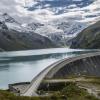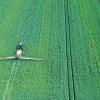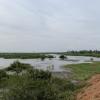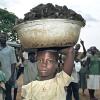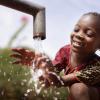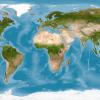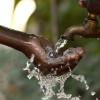
The objective of the WAT Group is to provide the scientific foundation needed for addressing the quest for water security across scales and to help bridge science-policy-practice gaps related to water management by leading global efforts on integrated assessment of water resources and exploring transformation pathways towards a water secure future.
Water plays a central role in all human activities and needs to be managed efficiently and sustainably. The WAT Group pushes the boundary of transdisciplinary water science enabled by the institute’s recognized expertise in systems science approaches, to provide the scientific knowledge needed to address the quest for water security. The group aims to lead global efforts on integrated assessment of water supply and demand and identify solutions options that improve water scarcity, ameliorate water quality, and enhance resilience to extreme events, while at the same time engaging with key stakeholders at different levels to translate science into policy.
The group’s research has informed the development of various widely used models, which will continually be refined and extended to enable application and analysis at policy-relevant spatial scales. The group contributes to several IIASA research themes including biodiversity and ecosystem services, production and consumption, technology and innovation, and governance and institutions, by providing the water resources research expertise required for the development of a systemic approach to resolving sustainability issues.
Models, tools, datasets
Projects
Staff
News
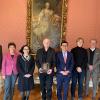
21 February 2025
Vietnamese Ambassador and IIASA discuss strengthening research collaboration

12 December 2024
Charting the course for water security in Europe and Central Asia

19 November 2024
IIASA researchers recognized on Clarivate’s 2024 Highly Cited Researchers™ List
Events
Focus
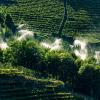
13 February 2025
New water withdrawal projections for Europe suggest more people will live in water-stressed areas
As water demand continues to rise across Europe, new analysis reveals that more people than previously estimated will face water stress in the coming decades. IIASA researchers working on the EU-Horizon ACCREU project highlight the urgent need for informed adaptation strategies.

17 July 2024
Biodiversity lessons from nature
IIASA researchers Silvia Artuso and Juliette Martin reflect on a recent workshop presented at the Institute as part of the IIASA School Engagement Initiative, during which they introduced students to systems analysis and took them on an adventure to explore the amazing biodiversity of Laxenburg park.
Publications
Joseph, J., Tramberend, S. , Kabi, F., Fischer, G., & Kahil, T. (2025). Sustainable intensification of fodder crop production can mitigate feed shortage and seasonality in East Africa. Environmental Development 54 e101158. 10.1016/j.envdev.2025.101158. Luo, Y.-L., Pan, Y.-R., Wang, X., Wang, Z.-Y., Daigger, G., Ma, J.-X., Tang, L.-H., Liu, J., Ren, N.-Q., & Butler, D. (2025). Leveraging the water-environment-health nexus to characterize sustainable water purification solutions. Nature Communications 16 (1) e1269. 10.1038/s41467-025-56656-6. Baccour, S., Tilmant, A., Albiac Murillo, J., Espanmanesh, V., & Kahil, T. (2025). Probabilistic Trade‐Offs Analysis for Sustainable and Equitable Management of Climate‐Induced Water Risks. Water Resources Research 61 (2) e2024WR038514. 10.1029/2024WR038514. Seijger, C., Urfels, A., Christoforidou, M., Hellegers, P., Borghuis, G., Langan, S. , & van Halsema, G. (2025). More food, but less land and water for nature: Why agricultural productivity gains did not materialize. Agricultural Water Management 307 e109229. 10.1016/j.agwat.2024.109229. Nkwasa, A., Menke, I., Murken, L., Zaharia, L., Ioana-Toroimac, G., Müller, L., Michetti, M., Asaduzzaman, M., Morosanu-Mitoșeriu, G.-A., Nakkazi, M.T., Akstinas, V., Akiyama, A.A., Gregor, K., Basaran, N., Kumar, A., Shiko, V., Tekin, H., Vaculovschi, E., Biçer, P.V., Reyer, C.P.O., & van Griensven, A.. (2025). Stakeholder engagement for inclusive climate impact attribution studies. Environmental Research: Climate 4 (1) e013001. 10.1088/2752-5295/ada8cc.

